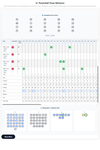Summary: Oworkers emerges as the ethical solution to the BPO industry's challenges, bridging the gap between cost-effective data annotation and specialized expertise while prioritizing employee well-being.
Artificial intelligence (AI) is increasingly becoming essential in today's broader landscape. Algorithms power everything, from virtual assistants to self-driving cars. Data annotation is a critical component in this process. It refers to the labeling, categorizing, and enriching of data to train machine learning (ML) models.
However, unknown to many, behind the scenes is a complex terrain filled with ethical dilemmas and challenges, particularly concerning the use of offshore operators. Companies seeking to feed AI algorithms with vast amounts of labeled data often turn to human operators in developing countries. According to Stephane Guillemin, founder of Oworkers, the rationale behind this choice is twofold: flexibility and cost-efficiency.
Operating in regions where labor costs are lower allows companies to scale their operations rapidly and minimize expenses. However, this practice raises significant concerns. One of the issues is the lack of adherence to ethical standards. Many business process outsourcing (BPO) service providers prioritize speed and cost savings over the well-being and fair treatment of their employees. Labor laws may be lax in these areas, and workers may face exploitative working conditions, low wages, and little to no job security.
Another factor to consider is that relying on offshore operators presents cultural and language barriers that can impede data annotation's accuracy and quality. After all, there is a high probability of misinterpretations or misunderstandings due to language differences. These may lead to inaccuracies in the labeled data, affecting the performance of AI algorithms.
Companies employing the offshore model also tend to struggle to monitor and ensure compliance with ethical guidelines and data privacy regulations. It is worth noting that there is the risk of data breaches, privacy violations, and misuse of sensitive information without proper oversight.
As the founder and head of development of a leading provider of BPO services, Guillemin emphasizes that the challenges in data annotation go beyond the outsourcing dilemma. "There are the simple labeling tasks suitable for offshore operators, but there are also the complex annotation tasks requiring specialized expertise. Take the annotation for medical images to detect cancer cells, for example. It demands a high level of knowledge and skill in that particular domain," Guillemin explains.
Dedicated to feeding AI ethically, Oworkers emerges as a role model for traditional BPO providers by prioritizing the well-being of its annotators, who are the backbone of the company. It has built delivery centers in Bulgaria, Egypt, and Madagascar and has employed over 500 individuals since its establishment in 2014.
Oworkers has earned a reputation for its adherence to stringent data security standards. It implements robust data security policies following the ISO 27001 framework, and soon ISO 45001. This translates to 100% data integrity with zero possibility of breaches or errors, allowing the company to provide clients with peace of mind regarding their sensitive information.
The impact sourcing company has solidified its position in the industry by championing social responsibility. It provides appropriate healthcare benefits and social security systems to all employees across its locations. With this, it contributes to improving living conditions for thousands of families worldwide.
"This is especially true in Madagascar and Egypt, where 75% of workers are women. Oworkers is all about empowering people and offering them opportunities beyond the industry standard," Guillemin supplies. Essentially, Oworkers' approach enhances employee satisfaction and retention and ensures the delivery of high-quality annotated data for AI development.
Besides ethical sourcing and employee well-being, Oworkers focuses on addressing the two extremes of data annotation tasks prevalent in the industry. It provides a reliable solution for simple data annotation tasks that require flexibility and cost-efficiency through its skilled offshore operators.
Similarly, for complex data annotation needing specialized expertise, Oworkers leverages its highly trained specialists to deliver exceptional results. Because it excels in catering to both ends of the spectrum, it stands as the ideal partner for AI companies seeking data annotation services.
It even provides opportunities for students and early-career professionals in Eastern Europe, particularly those studying medicine or law. Guillemin shares, "We offer them a chance to earn a good income while contributing to the advancement of their respective industries." This illustrates the company's dedication to advocating for continuous learning and professional development.
Ultimately, Oworkers sets a new standard for ethical outsourcing by prioritizing integrity, social responsibility, and employee well-being. By seeking its services, companies can feed their AI algorithms ethically while driving innovation and progress in the field.
Media Contact
Name: Ravaka Rasoelinirina
Email: [email protected]






